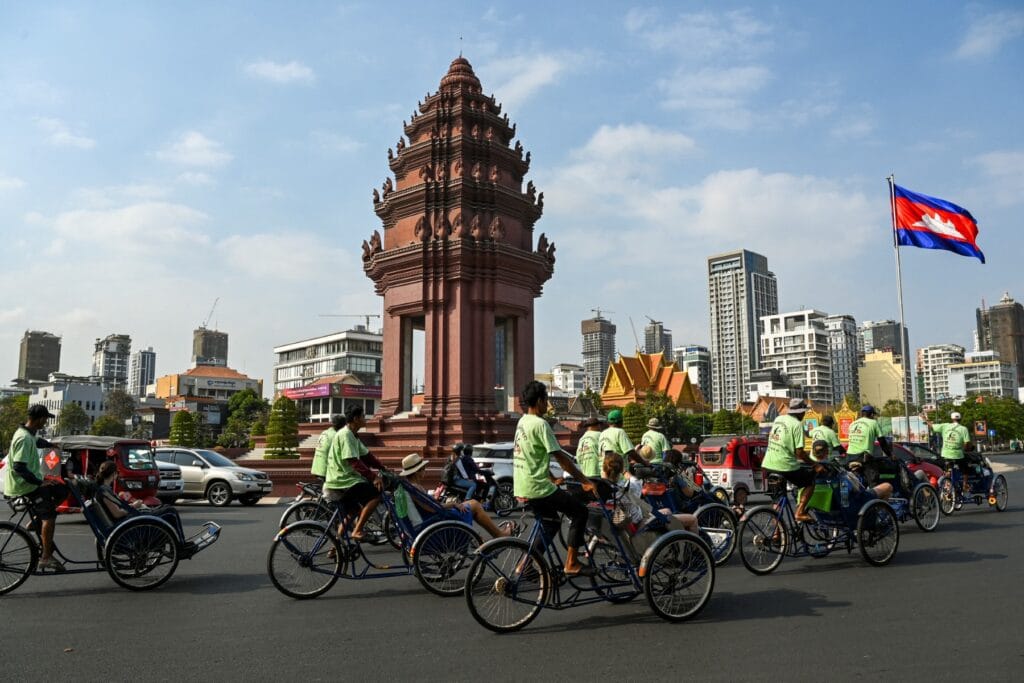October 14, 2025
SEOUL – Following the death of a South Korean university student in Cambodia in August, the government is stepping up efforts to deal with the increase in abductions of Korean nationals there, but say progress with police is slow.
On Aug. 8, a Korean university student in his 20s — identified by the surname Park — was found dead in Kampot, Cambodia, around three weeks after he had told his family in Korea that he would be attending a job fair in the country. Authorities believe he was lured by a fraudulent job offer, held captive and ultimately killed.
On Monday, authorities added that they were investigating another report of a Korean man in his 30s who was reported to be missing after losing touch with family on Aug. 22, three days after leaving for Cambodia.
Police said the man briefly contacted his family via a Telegram video call on Aug. 24, saying he could be released if they wired him 20 million won ($14,000).
A similar case was filed in Gwangju the same day, involving a man in his 20s who went missing after leaving for Thailand on June 26. His family, who last spoke with him on Aug. 10, said he was confirmed to be in Phnom Penh, Cambodia, at that time.
The three incidents are among a growing number of abductions of Korean nationals in Cambodia. According to the Foreign Ministry, reports of Koreans being held against their will in Cambodia had already reached 330 cases this year as of August, a significant surge from 220 cases for the whole of last year and 17 cases in 2023.
Many of these crimes begin with fake advertisements for high-paying, easy jobs abroad. Victims are told they can earn millions of won a month doing simple translations or computer tasks without the need for qualifications. To gain trust, scammers may offer to cover airfare and additional travel costs.
Authorities believe that once victims arrive in Cambodia, criminal groups seize their passports, phones and valuables before confining them and forcing them into online scams such as voice phishing, cryptocurrency fraud and romance scams.
Since July, the Foreign Ministry began distributing warnings to Korean travelers urging them to be skeptical of job offers from acquaintances, placing emphasis on avoiding offers that promise high pay or prepaid airfare, verifying job details with local representatives and never signing documents without fully understanding them.
To improve authorities’ emergency response, Korea asked Cambodian authorities to allow police action based solely on the victim’s identity and presumed location — a change from the current policy requiring victims to report the case directly.
However, according to the Korean National Police Agency’s acting Chief Yoo Jae-seong during a press briefing on Monday, cooperation between Korean and Cambodian police has been “less smooth” than it has been with other countries.
According to the KNPA, Korean authorities have sent multiple requests to Cambodian police asking for rapid investigative cooperation, including participation in an autopsy of the university student found dead in Kampot and access to relevant case records. Cambodian authorities reportedly responded that such requests must go through formal mutual legal assistance procedures, which the KNPA has said are time-consuming and require clearance through both countries’ justice and foreign ministries.
“If there are ways to apply pressure through organizations like Interpol, we’ll pursue them,” Yoo said Monday. “It’s difficult to secure effective cooperation if the other side is unwilling, but we will keep pushing through direct visits, international channels and diplomatic pressure.”
During a bilateral meeting with high-ranking Cambodian police officials on Oct. 23, the KNPA added that Yoo plans to ask them for “stronger countermeasures” to curb the rise in crimes targeting Korean nationals, including setting up a “Korean Desk,” or a help desk within the Cambodian police station for Korean nationals, and dispatching Korean police officers to Cambodia.
Meanwhile, one of the three Chinese nationals suspected of killing Park may have played a central role in a high-profile drug distribution case in Seoul’s Daechi-dong in 2023, according to local media reports.
The reports cite findings from Cheonma — a volunteer group that monitors crimes targeting Koreans overseas — which identified a 34-year-old Chinese man known by the surname Li as the prime suspect in Park’s death. Li is also believed to have been the chief distributor of drug-laced drinks in Daechi-dong, southern Seoul, where narcotics-laced beverages were handed out to students near cram schools in April 2023.
lee.jungjoo@heraldcorp.com







